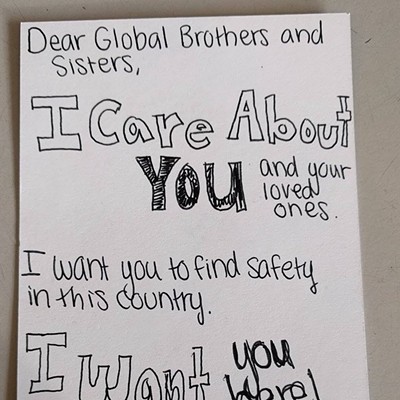Governor
Jay Inslee vs. Bill Bryant
In his four years in office, Gov. Jay Inslee has a lot he can brag about. The state is rapidly coming back from the recession, with more than 280,000 jobs added over the past four years. Inslee celebrates the $16 billion transportation package he signed, the $5.5 billion in new spending he's poured into education, and the decrease in college tuition he worked with Republicans to pass. And by executive order, he established new clean air rules in the state.
But his opponent, former Seattle Port Commissioner Bill Bryant, suggests that Inslee also has a lot to be ashamed about. Compared with Spokane Republicans, Bryant is relatively moderate: He believes in man-made climate change and would have voted for the gas tax hike to fund the transportation package.
Still, he savages Inslee for the state's lagging employment rate and underfunded education system. He draws attention to the warning signs he claimed Inslee ignored in the lead-up to the embarrassing scandals that included state prisoners being incorrectly released early and a slew of dangerous Western State Hospital patients escaping. And he argues that Inslee's obsession with climate change has meant that he's ignored other important environmental issues, like saving salmon. (DANIEL WALTERS)
Superintendent of Public Instruction
Erin Jones vs. Chris Reykdal
Both Erin Jones and Chris Reykdal agree on what needs to be fixed with Washington's education system: inequities in the quality of education between school districts, an achievement gap disproportionately affecting low-income students and students of color, and too much of an emphasis on state standardized tests. The difference between the two candidates is how they plan to fix these problems. Jones would use her experience as an educator and gather various agencies and advocacy groups to craft a vision that works in the classroom. Reykdal, a state representative, would take a more data-driven approach. Neither say they would "hammer" state lawmakers to fund education in the same way as current superintendent Randy Dorn, though both agree it will take billions of dollars to fully fund education in Washington. (WILSON CRISCIONE)
Commissioner of Public Lands
Hilary Franz vs. Steve McLaughlin
Commissioner of Public Lands is an often-overlooked position responsible for overseeing the Department of Natural Resources, an agency that manages 5.6 million acres of state land, in addition to Washington's largest firefighting operation. Hilary Franz, 46, a Democrat and former executive director of the Seattle-based land-use advocacy group Futurewise, says she's for "active management" of forests, using data to determine how much logging is fiscally and environmentally sustainable. Her supporters say her opponent, Steve McLaughlin, is too close to the timber industry and has ties with militant groups. McLaughlin, 60, a Republican and retired Navy commander, has argued for a more conciliatory approach from land management agencies and increased logging to prevent fires. His supporters say Franz has been too involved in land-use lawsuits and is too close to litigious environmental groups. (JAKE THOMAS)
Supreme Court
Chief Justice Barbara Madsen vs. Greg Zempel; Justice Charlie Wiggins vs. Dave Larson; Justice Mary Yu vs. David DeWolf
Confidence in the court, judicial activism (as opposed to judicial restraint) and the influence of money are just three of the issues in this year's State Supreme Court elections. This is the first year since the 1990s that all three justices up for re-election, including Chief Justice Barbara Madsen, face challengers. David DeWolf (challenging Justice Mary Yu) is a legal scholar and recently retired Gonzaga University School of Law professor who believes in less judicial activism. He points to court-organized symposiums on topics ranging from pretrial justice reform to re-entry programs and adolescent brain development as examples of justices overstepping their roles.
Yu, a former King County prosecutor and Superior Court judge, presents a more progressive stance than her challenger, and says she is proud of her involvement with the symposiums. Yu joined the court after its 2012 decision in the McCleary case, which found that the state underfunded K-12 education. However, Yu supports the court's decision in McCleary.
Greg Zempel, who is challenging Madsen, is the elected prosecutor in Kittitas County. Zempel echoed DeWolf's concerns over the symposiums, saying "that doesn't feel like a it's a fair judiciary on those issues as they come before the court."
Madsen was elected to the bench in 1992, and has been chief justice since 2010. As such, she has been instrumental in the McCleary decision. She (and the court) have faced criticism for the 2015 decision to overturn voter-approved charter schools, which was handed down just days after several charter schools began classes.
Dave Larson (challenging Justice Charlie Wiggins) is the presiding judge of Federal Way Municipal Court. While Wiggins expresses opposition to large donations to judicial candidates, Larson maintains that a judge's core responsibility is to make a decision based on the law and the facts, and nothing else.
Wiggins, who sided with the majority in McCleary, contends that large donations in judicial elections give the rich an unfair advantage. During a forum in Spokane, he also spoke in support of therapeutic courts, such as drug court.
Critics of the current Supreme Court say the court's ideological shift to the left has resulted in "judicial activism," pointing to the McCleary decision. All three challengers disagree with McCleary. Although this race is nonpartisan, conservative critics played a role in recruiting the three challengers. (MITCH RYALS)






















